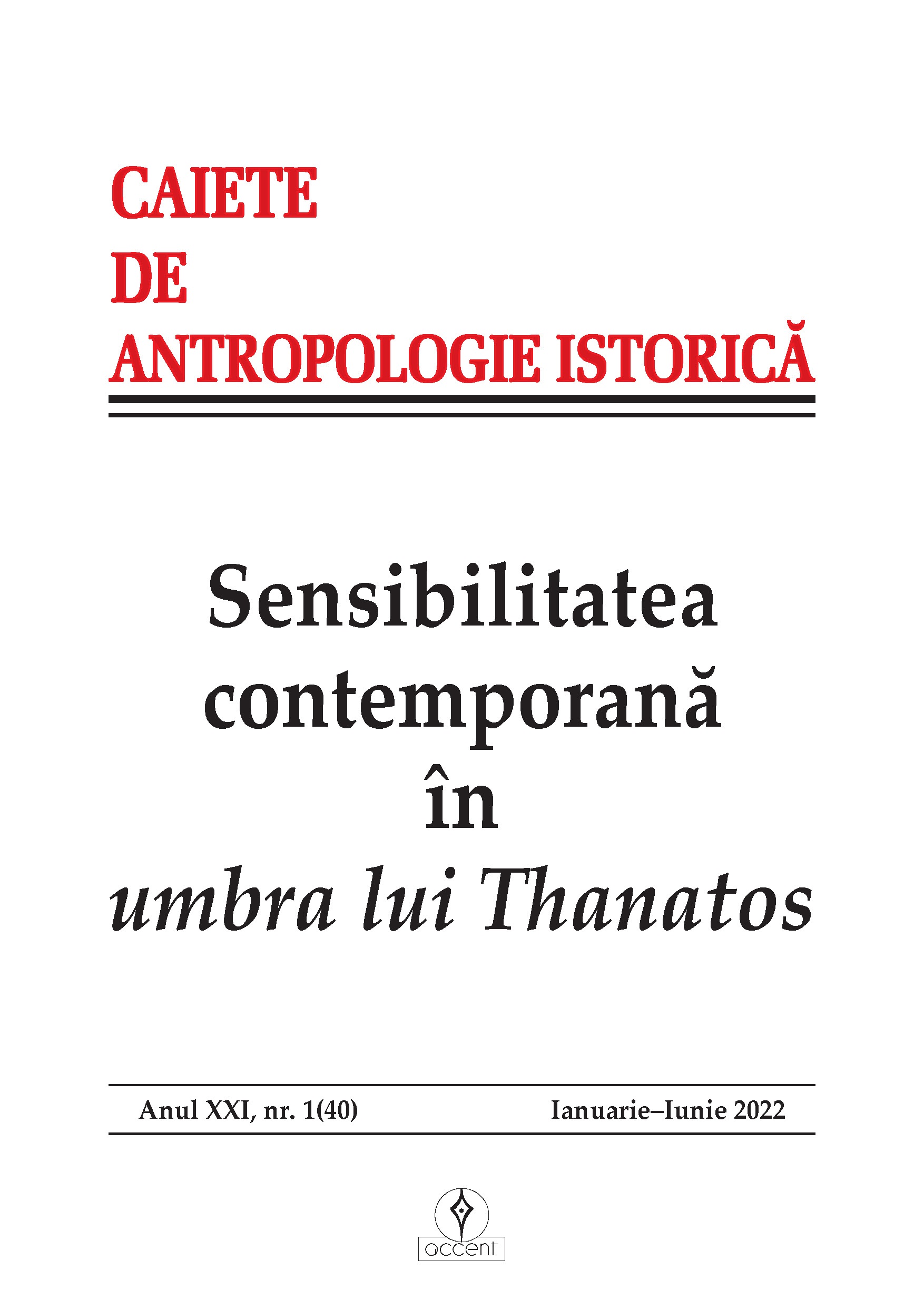Secularizarea concepției despre moarte în secolele XIX–XX
Secularization of the concept of death in the nineteenth and twentieth centuries
Author(s): Simona NicoarăSubject(s): Christian Theology and Religion, Anthropology, History of ideas, Recent History (1900 till today), Religion and science , 19th Century
Published by: Accent Publisher
Keywords: Christianity; Christianization; secularization; anthropology; body; soul; corpse; ethics; funeral practices;
Summary/Abstract: The secularization of the concept of death is considered a triumph of the secularization and de-Christianization of European societies. The phenomenon of secularization has changed the mentalities and traditions of the peoples of Europe, the legislation, the way of understanding family, love, sexuality, but especially the relationship to death and eternity. The study proposes a brief analysis that connects the history of conceptions and attitudes toward death — and funeral practices in nineteenth — and twentieth-century Europe — to the discussion of de-Christianization and secularization. A secularization that has not been a marginal phenomenon but has fully touched the heart of modern civilization in the last two centuries. In general, research into the phenomenon of death and burial offers historians rich perspectives on secularization. Secularized conceptions of death have given rise to a huge interest in the phenomenon of death and the status of the body after death. Once secular forces managed to break the church’s monopoly on death and burial, a market for funerals and a culture of death were gradually created, with strictly cultural, political, and economic effects. In the absence of moral and ethical guidelines, secular ideologies have established an equivalence between corpse and waste. The vision of death and the recycling of dead human bodies is also found in the realm of the great contemporary dystopias.
Journal: Caiete de Antropologie Istorică
- Issue Year: 2022
- Issue No: 40
- Page Range: 128-137
- Page Count: 10
- Language: Romanian

